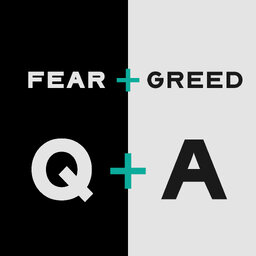Interview: Problem solving with the world’s greatest mathematician
Professor Terence Tao is regarded as the world’s greatest living mathematician. Originally from Adelaide, he was doing university level maths by age 9.
He joins Sean Aylmer from the US to discuss how problem solving can help business, and what we need to do to improve Australia’s mathematical prowess.
In 1 playlist(s)
FEAR & GREED | Business News
Daily business news for people who make their own decisions, with business journalist Sean Aylmer an…Social links
Follow podcast
Recent clips

Q+A: Are we watching the slow death of David Jones and Myer?
10:10

Afternoon Report | Attempted bombing declared terrorism
04:37

CGT scale back for property investors; tech stocks hammered; $US500b crypto sell-off
17:22
 FEAR & GREED | Business News
FEAR & GREED | Business News